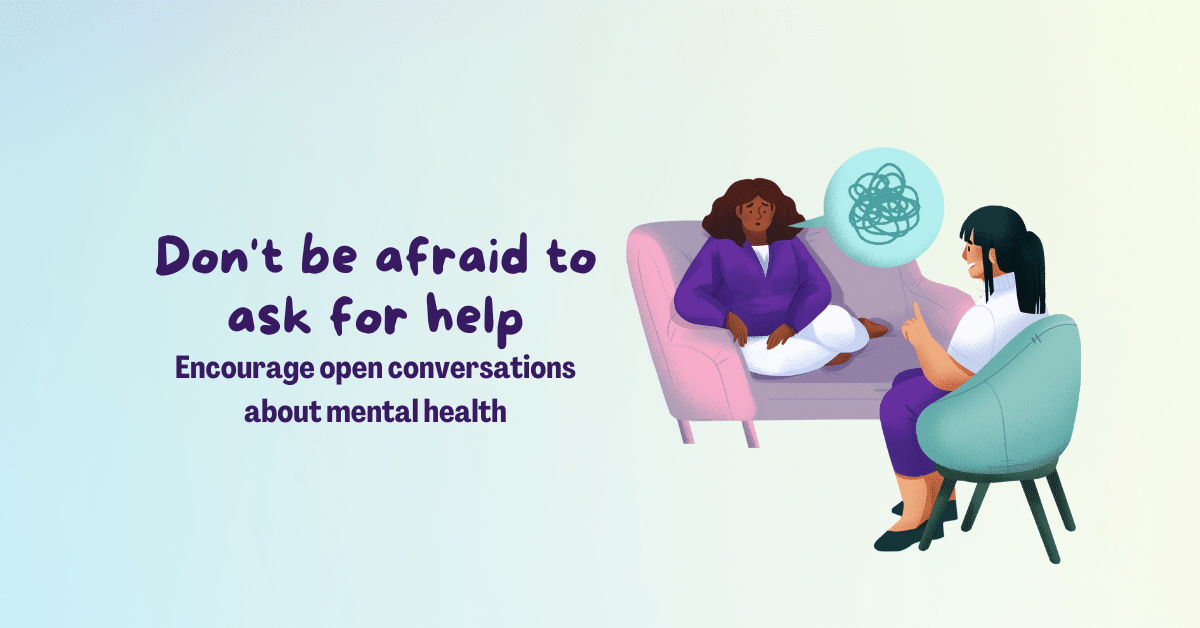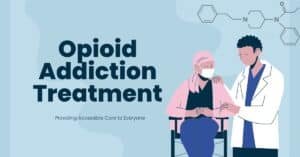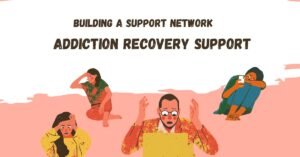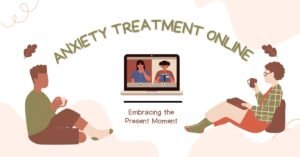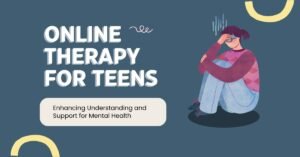Mental health is an essential aspect of our well-being, yet many people struggle to discuss it openly. Stigma surrounding mental health issues often prevents individuals from seeking help, leading to feelings of isolation and shame. However, fostering open conversations and promoting mental health stigma reduction can change the way society views mental health, encouraging more people to get the help they need. In this article, we’ll explore the importance of raising mental health awareness, changing societal perceptions, and advocating for a more accepting and understanding community.
Understanding Mental Health Stigma
Mental health stigma occurs when people judge or treat others differently because they have a mental health condition. This stigma often stems from societal perceptions that mental health issues are a sign of weakness, something to be ashamed of, or something that can easily be controlled by willpower alone. Unfortunately, these misconceptions can discourage people from seeking treatment or talking about their struggles.
When people don’t feel comfortable discussing their mental health, it can worsen their symptoms and prevent them from getting the care they need. Mental health stigma reduction is critical to ensuring that everyone feels supported and understood, regardless of their mental health status.
The Role of Mental Health Awareness
Raising mental health awareness is one of the most effective ways to combat stigma. When people are educated about mental health, they are more likely to understand that mental health conditions are real, manageable, and common. Awareness campaigns can help break down myths and misinformation, making it easier for individuals to talk about their mental health without fear of judgment.
Mental health awareness is also about normalizing the conversation. By openly discussing mental health in schools, workplaces, and communities, we can help others feel less alone. Mental health issues can affect anyone, regardless of their background or life situation. The more we talk about it, the more we reduce the shame often associated with seeking help.
Challenging Societal Perceptions
Changing societal perceptions about mental health is an important step in reducing stigma. Many people still hold onto outdated beliefs about mental health, believing that conditions like depression, anxiety, or bipolar disorder are simply signs of personal weakness. In reality, mental health conditions are medical issues, often requiring treatment just like physical health conditions.
To change these perceptions, we must challenge the stereotypes that keep stigma alive. It’s crucial to highlight the fact that mental health conditions are common and that recovery is possible with the right support and resources. By sharing stories of recovery and resilience, we can help change how society views mental health.
The Power of Open Conversations
One of the best ways to promote mental health stigma reduction is by encouraging open conversations. Talking about mental health can help normalize the experience and show others that they’re not alone. Here are some tips for starting these important conversations:
- Listen without judgment: If someone opens up about their mental health struggles, be a compassionate listener. Avoid offering quick fixes or making them feel like they need to hide their feelings.
- Share your own experiences: If you feel comfortable, sharing your own mental health challenges can encourage others to do the same. Your openness can help reduce the stigma for others who may be afraid to speak out.
- Promote a supportive environment: Whether at work, home, or school, creating a supportive space where mental health is openly discussed can make a big difference. Offer resources, like counseling or support groups, and make sure that everyone feels included and understood.
The Importance of Advocacy
Advocacy plays a key role in mental health stigma reduction. Advocates work to change policies, raise awareness, and fight for the rights of people with mental health conditions. Advocacy can take many forms, from organizing mental health awareness events to speaking up in your community about the importance of mental health care.
Advocates also work to ensure that mental health care is accessible to all. In many places, access to mental health services is limited due to cost, location, or lack of resources. By advocating for better mental health care, we can help ensure that everyone has access to the treatment and support they need.
Mental Health Resources and Support
For individuals facing mental health challenges, having access to resources is crucial. Many organizations and services, such as Passages WV, offer support for those struggling with mental health issues. These resources can include counseling, therapy, support groups, and educational tools designed to help people understand and manage their mental health.
Encouraging individuals to seek out these resources is part of mental health stigma reduction. When people feel empowered to reach out for help, they are more likely to experience recovery and improved well-being. By sharing information about available mental health resources, we can ensure that more people get the help they need.
Breaking Down Barriers to Care
One of the main reasons people don’t seek help for mental health issues is the stigma attached to it. Many fear being judged or misunderstood if they admit they need help. Mental health stigma reduction efforts aim to break down these barriers by creating a more understanding and compassionate society.
Educating people about the realities of mental health conditions is a crucial step in breaking these barriers. When people understand that mental health issues are common and treatable, they are more likely to seek the help they need without fear of judgment. Additionally, reducing the stigma surrounding therapy, medication, and other treatments can encourage more people to take proactive steps toward their mental well-being.
How Passages WV Can Help
At Passages WV, we are dedicated to promoting mental health awareness and providing resources for individuals struggling with mental health conditions. Our services include counseling, therapy, and support groups that offer a safe space for individuals to talk about their mental health without fear of judgment. We are committed to creating a community where mental health is openly discussed and where individuals feel empowered to seek the help they need.
Whether you are facing your own mental health challenges or want to learn more about how to support someone else, Passages WV is here to help. Our mental health advocacy efforts focus on breaking down the stigma and ensuring that everyone has access to the care and support they need to thrive.
Conclusion
Breaking the stigma surrounding mental health is essential to creating a more compassionate and supportive society. Mental health stigma reduction begins with open conversations, mental health awareness, and changing societal perceptions about mental health conditions. By promoting understanding, offering support, and encouraging individuals to seek help, we can create a world where mental health is prioritized and everyone feels safe discussing their experiences.
If you or someone you know is struggling with mental health issues, don’t hesitate to reach out for help. Visit Passages WV to learn more about our services and how we can support you on your journey to mental well-being. Together, we can break the stigma and promote a healthier, more understanding world.

